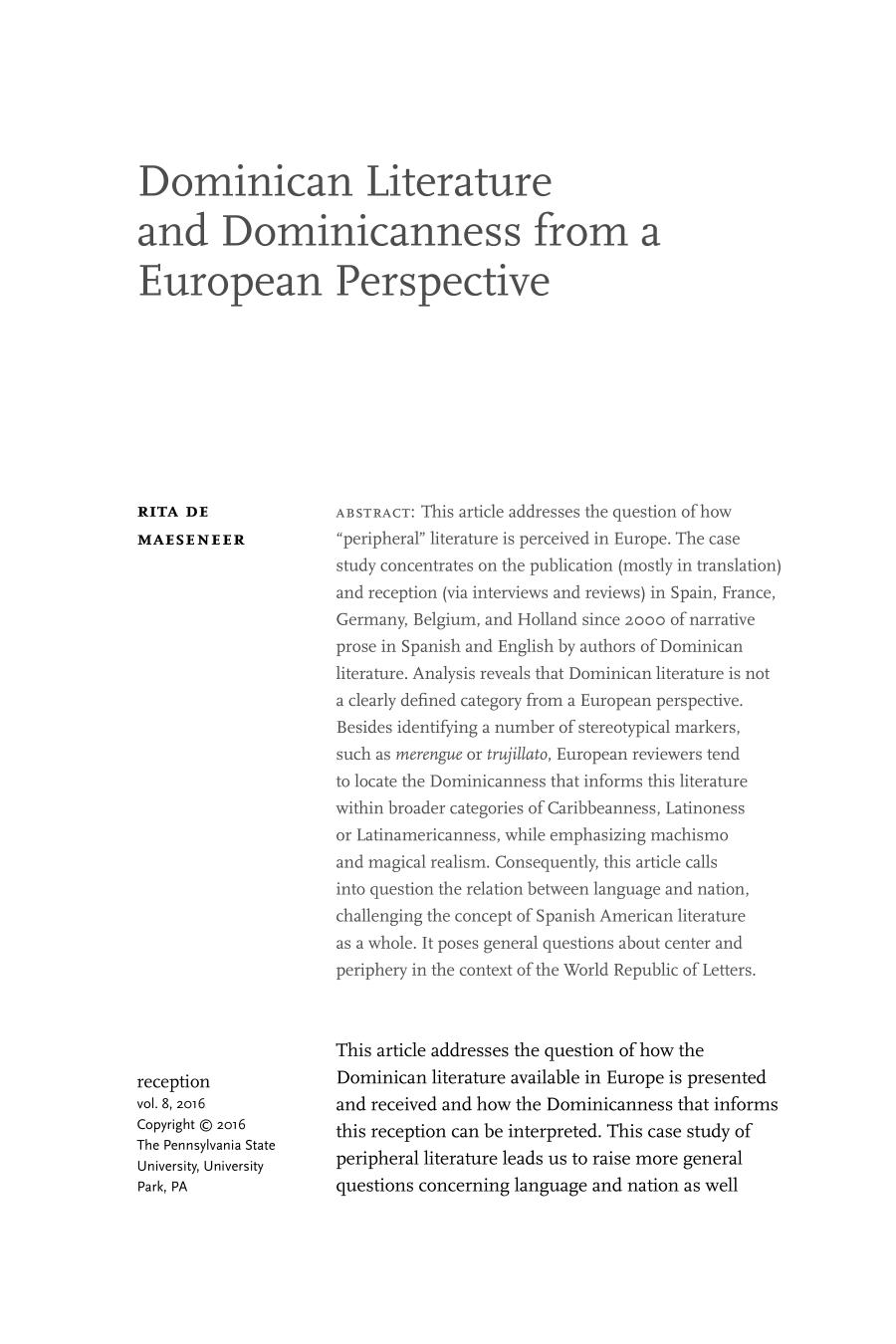
Dominican Literature and Dominicanness from a European Perspective PDF
Preview Dominican Literature and Dominicanness from a European Perspective
abstract: This article addresses the question of how
“peripheral” literature is perceived in Europe. The case
study concentrates on the publication (mostly in translation)
and reception (via interviews and reviews) in Spain, France,
Germany, Belgium, and Holland since 2000 of narrative
prose in Spanish and English by authors of Dominican
literature. Analysis reveals that Dominican literature is not
a clearly defined category from a European perspective.
Besides identifying a number of stereotypical markers,
such as merengue or trujillato, European reviewers tend
to locate the Dominicanness that informs this literature
within broader categories of Caribbeanness, Latinoness
or Latinamericanness, while emphasizing machismo
and magical realism. Consequently, this article calls
into question the relation between language and nation,
challenging the concept of Spanish American literature
as a whole. It poses general questions about center and
periphery in the context of the World Republic of Letters.
